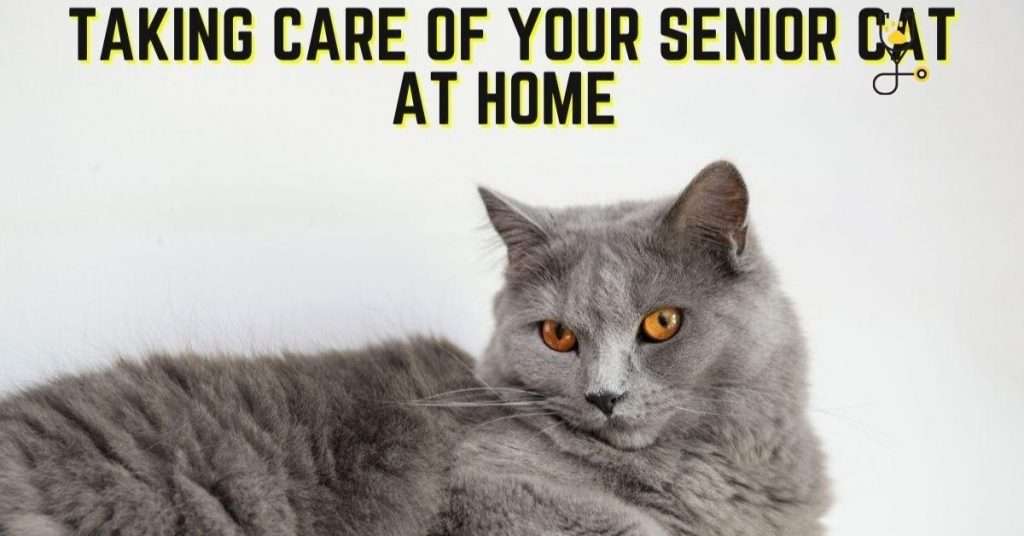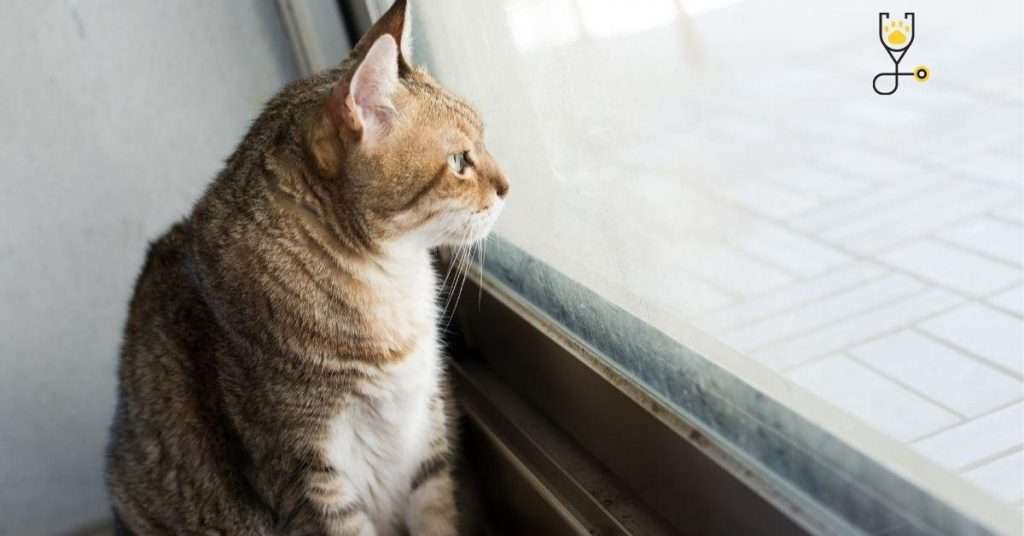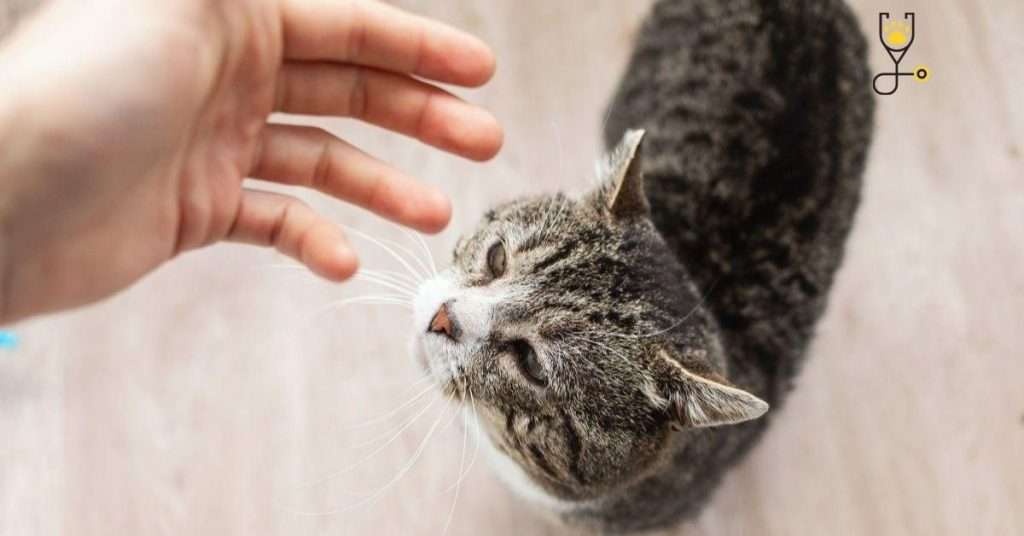Do you have a senior cat at home who is getting up there in years? Are you finding that your vet isn’t always available when you need them? If so, don’t worry – there are plenty of things you can do to take care of your senior cat at home. In this blog post, we’ll talk about some of the most important things to keep in mind when taking care of an older cat. So if you’re feeling lost and don’t know what to do, read on for some helpful tips!
As your cat enters their senior years, you may notice some changes in their behavior or appearance. They may start to sleep more, or they may become less active. These changes are normal and to be expected as your cat ages. However, there are some things you can do to help make sure your senior cat stays healthy and happy.
Vaccination: One of the most important things you can do for your senior cat is to keep up with their vaccinations. Cats of all ages need to be vaccinated against diseases like rabies and distemper. Senior cats may also need booster shots for these diseases, so be sure to ask your vet about what’s recommended for your cat’s age group.
Give Proper Exercise: You should also take steps to ensure that your senior cat is getting enough exercise. Just because they’re not as active as they used to be doesn’t mean they don’t need some form of exercise. A simple game of chasing a toy around the house or even just going for a short walk on a leash can help keep your senior cat’s muscles and joints healthy.
Health Problems: As your cat gets older, they may also start to experience some health problems. Some common health problems in senior cats include arthritis, kidney disease, and heart disease. If you notice any changes in your cat’s health, be sure to take them to the vet right away. Early diagnosis and treatment of these conditions can help improve your cat’s quality of life and extend their lifespan.
All About Cats in Our Detailed Guide Here: The Ultimate Guide To Cat healthcare

Finally, it’s important to give your senior cat the love and attention they need as they age. They may not be as playful as they used to be, but they still need plenty of love and affection. Spend time petting them, playing with them, and just spending time together. This will help keep your bond strong and provide your cat with the emotional support they need as they age. Taking care of a senior cat can be challenging, but it’s also incredibly rewarding. These tips will help you make sure your senior cat stays healthy and happy well into their golden years.
Health Issues in Geriatric Cats
As your cat enters their senior years, they may start to experience some health problems. Some common health problems in senior cats include arthritis, kidney disease, and heart disease. If you notice any changes in your cat’s health, be sure to take them to the vet right away. Early diagnosis and treatment of these conditions can help improve your cat’s quality of life and extend their lifespan.
Learn More: 10 Ways to Take Care of Your Cats Teeth and Gums Without a Vet Visit
Arthritis
Arthritis is a common condition that affects many older cats. Symptoms of arthritis include pain, stiffness, decreased activity levels, and difficulty climbing stairs or getting into the litter box. If you think your cat may have arthritis, take them to the vet for a diagnosis. There are many treatments available that can help ease your cat’s pain and improve their quality of life.
Kidney Disease
Kidney disease is another common health problem in senior cats. Symptoms of kidney disease include increased thirst, increased urination, weight loss, and vomiting. If you think your cat may have kidney disease, take them to the vet for a diagnosis. Early diagnosis and treatment is important for managing this condition and improving your cat’s quality of life.
Heart Disease
Heart disease is a serious condition that can affect senior cats. Symptoms of heart disease include shortness of breath, coughing, lethargy, and decreased appetite. If you think your cat may have heart disease, take them to the vet for a diagnosis. There are many treatments available that can help manage this condition and improve your cat’s quality of life.
Home Tips For Health Problems
Caring for a Senior Cat
Taking care of a senior cat can be challenging, but it’s also incredibly rewarding. These tips will help you make sure your senior cat stays healthy and happy well into their golden years.
Learn More: Taking Care of Your Senior Cat at Home When No Vet Is Available
Provide Plenty of Love and Attention
As your cat gets older, they may not be as playful as they used to be, but they still need plenty of love and attention. Spend time petting them, playing with them, and just spending time together. This will help keep your bond strong and provide your cat with the emotional support they need as they age.
Learn More: 10 Tips to Keeping Your Cat Happy
Make Their Home Comfortable
As your cat ages, they may have difficulty getting around or accessing their litter box. Make sure their home is comfortable and easy for them to navigate by removing obstacles, providing ramps or stairs, and making sure their litter box is easily accessible.
Feed Them a Nutritious Diet
A nutritious diet is important for all cats, but it’s especially important for senior cats. Talk to your vet about what type of food is best for your cat and make sure they’re getting the nutrients they need to stay healthy.
Learn More: 20+ Human Foods That Cats Can Eat
Provide Regular Veterinary Care
Regular check-ups and veterinary care are essential for keeping your senior cat healthy. Be sure to take them to the vet at least once a year for a check-up and more frequently if they have any health problems. Early diagnosis and treatment of health problems can improve your cat’s quality of life and extend their lifespan.
With proper care, your senior cat can enjoy a long and happy life. These tips will help you make sure your cat stays healthy and happy well into their golden years.
Read More: How do you know your Cat needs help?